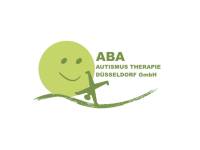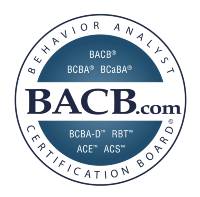Welcome to our website in English!
Our services are also offered in English.
ABA Autismus Therapie Düsseldorf GmbH offers ABA based therapy for children with autism spectrum disorders (ASD) in Düsseldorf and the surrounding area.
Its founder, Mr. Rodrigo Pellet Lastra, is a licensed Psychologist (UCA, ARG.) and Board Certified Behavior Analyst (BACB, USA). Applied Behavior Analysis is one of the most effective approaches for the treatment of autism sprectrum disorders.
ABA Intervention Overview
ABA Autism Therapy Dusseldorf GmbH offers autism-specific therapy according to Applied Behaviour Analysis (ABA). Our services are directed by the goals, ethical principles, and methods of this behavioural science. Based on these 3 pillars, our ABA concept provides a highly effective therapeutic approach for the promotion of children diagnosed with autism spectrum disorder (ASD).
AIM OF OUR INTERVENTIONS
The goal of our ABA practice is to create "socially significant developments" among our clients. Our therapy programs focus on the improvement of those abilities that enable the children to achieve a better quality of life and the widest possible integration in the short and long term.
ETHICAL PRINCIPLES FOR OUR INTERVENTIONS
Ethics is a top priority at ABA Autismus Therapie Düsseldorf GmbH. Among the guiding ethical principles are the following:
Our clients have the right to effective procedures. This principle comes into play through extensive quality assurance.
Respect for the inherent dignity of man and his own identity. Our therapy is based on the child's own motivation, preferences and strengths.
The safety and well-being of our clients take precedence.We do not exceed our competences. Our interventions focus on subject areas in which we are competent. Our competences extend to behavioural interventions in autistic children.
Collaboration. Effective support can only be achieved if as many people as possible in the education of the child are included in the intervention. This includes the families, schools and therapists of other disciplines.
INTERVENTION METHODS
Our intervention methods - or teaching methods - focus on observable and measurable behavioral dimensions so that the initial abilities can be identified and progress can be measured objectively. Only in this way can it be ensured that the interventions are effective.
Although our therapeutic interventions are scientifically and objectively structured, they are playful, so that the children have as much fun as possible. We want children to enjoy the session and to learn as much as possible. For this it is necessary that the children are highly motivated.
In developing each intervention, we ask ourselves and the family 3 questions that need to be answered positively so that the intervention can be implemented:
1. Is the goal of intervention socially significant for the child? Does the intervention further the child’s acquisition of socially
significant abilities?
2. Is the procedure appropriate? Is compliance with our ethical principles ensured?; Are the resources to be applied (e.g., time,
money) adequate in terms of the significance of the goal? Will the motivation and preferences of the child be considered?
3. Is the behavioural change to be achieved qualitatively and/or quantitatively significant? Is the change in behaviour
comprehensive and far-reaching? The best interventions are those that allow a change in behaviour that positively affects, in
the long term, several dimensions of behaviour and can be applied in as many different situations as possible.
OUR PRINCIPLES
Regardless of which therapeutic procedure is selected for a particular intervention, the interventions are individually tailored to the child's needs and implemented in accordance with the following principles:
"The child knows best.” The intervention is appropriate if it works as planned. Again, if the intervention does not lead to the
expected goal, it must be changed. The child "tells" us what is good for them and what is not.
"Error-free learning.” We try to lead the child from the beginning to success. As the child gradually learns the ability to acquire a
new skill, the guidance is gradually faded out until the child is able to perform that skill independently.
If you wish to learn more about us, please send us an e-Mail or contact us through the contact form below.
Thanks for your interest in us!




